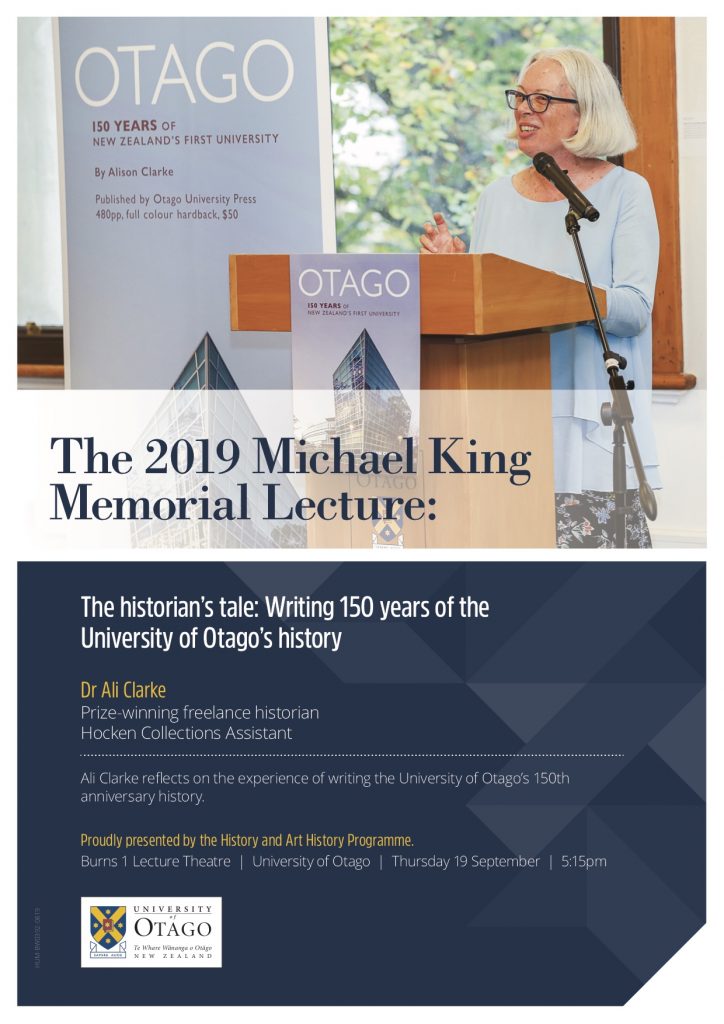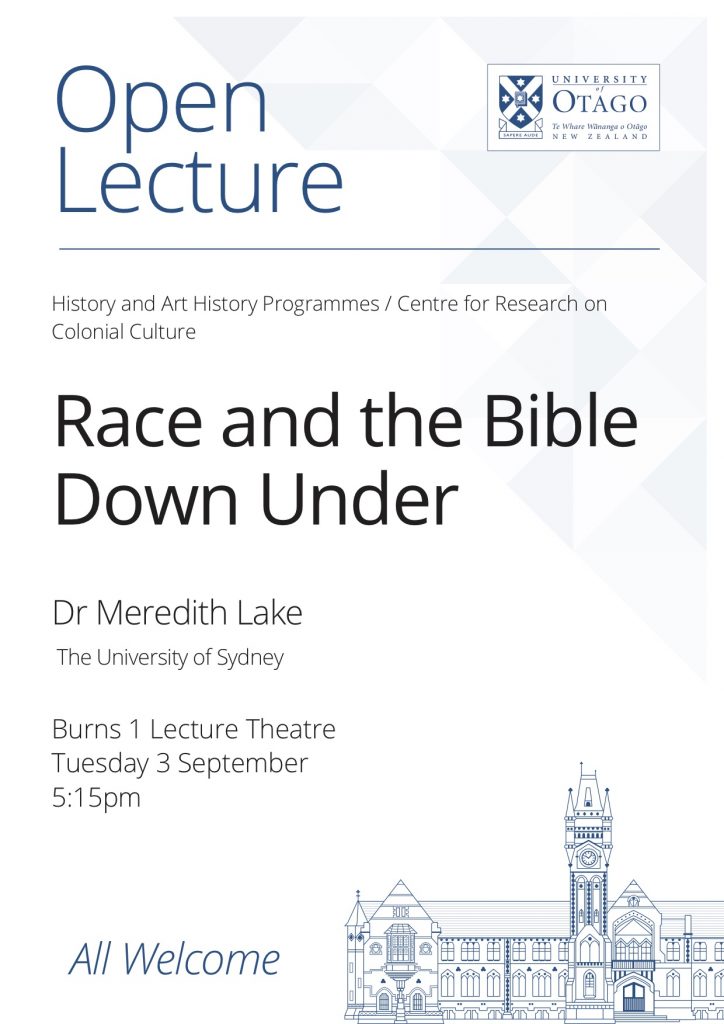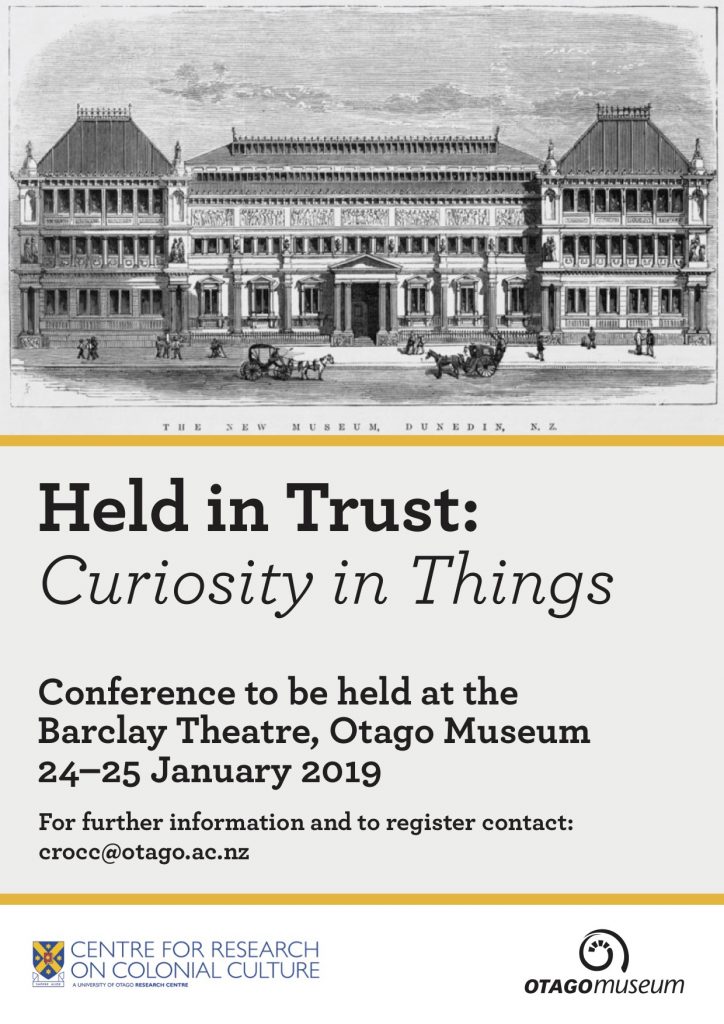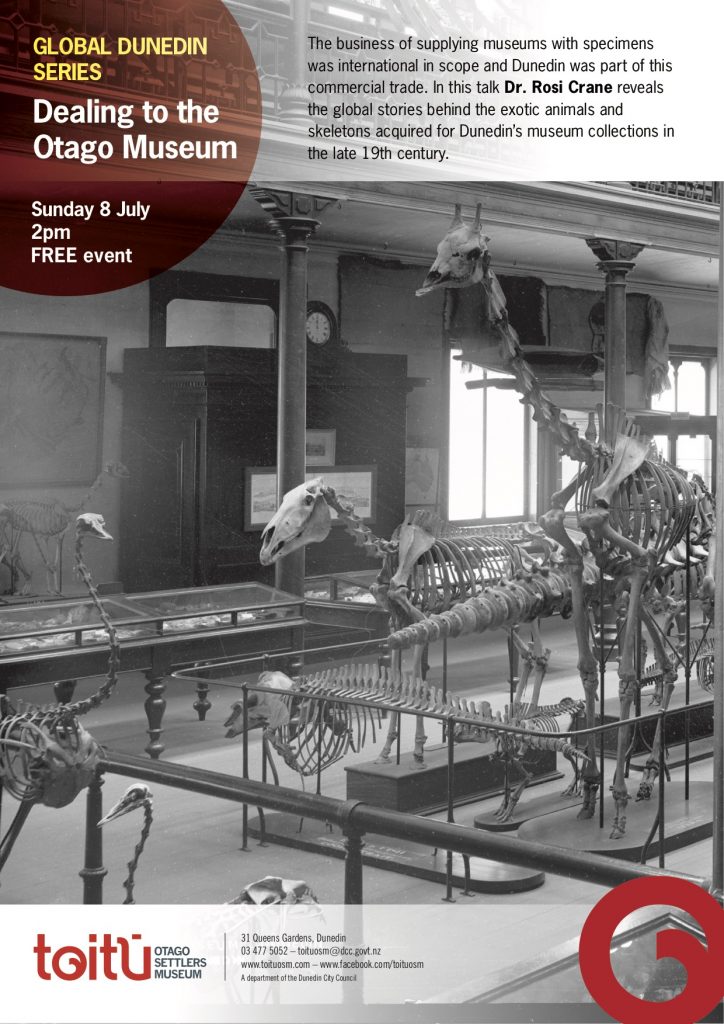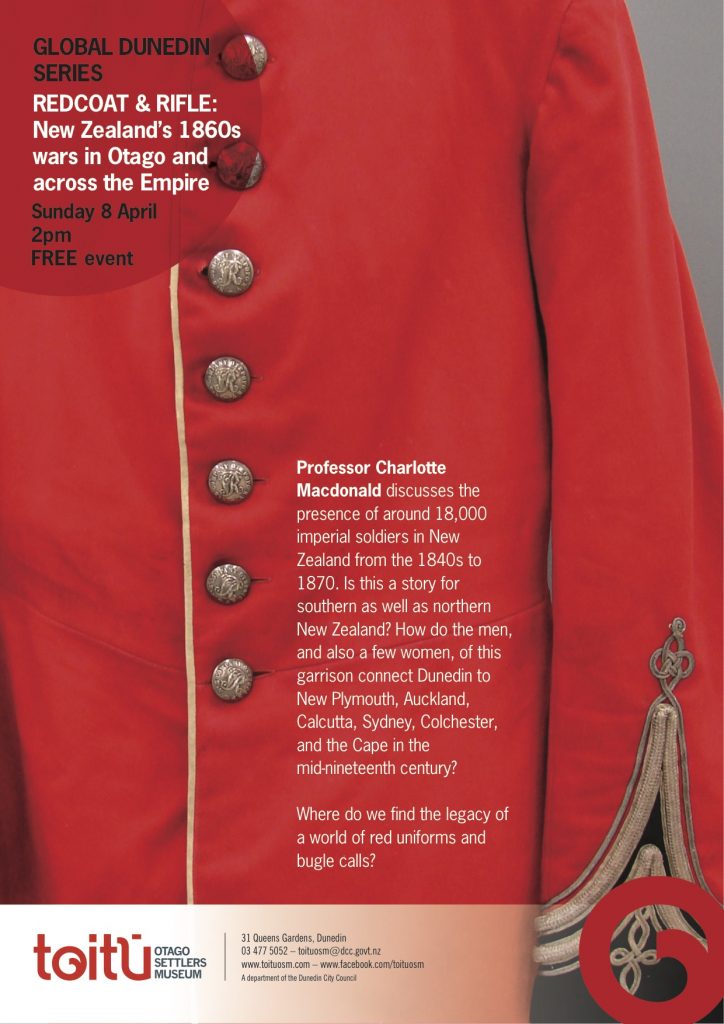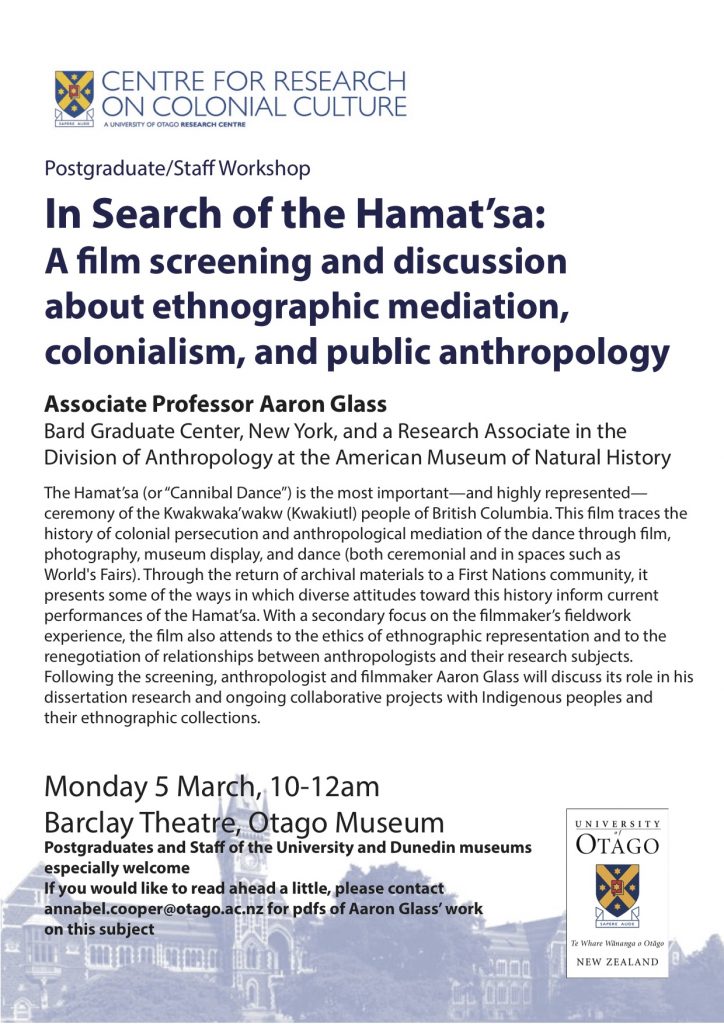Ali Clarke to give the Michael King Memorial Lecture
Ali Clarke, prize-winning historian and friend of the Centre, will give the Michael King Memorial Lecture on Thursday 19 September. This prestigious annual lecture is sponsored by the History and Art History programme. Ali will speak about her experiences researching and writing her book marking the 150th of the University of Otago. All are welcome!
Race and the Bible Down Under
The Centre is delighted to be co-sponsoring a public lecture by Dr. Meredith Lake, author of The Bible in Australia: a cultural history, which has been short-listed for a major Australian history prize.
Dr. Lake will give a public lecture on 3 September on ‘Race and the Bible Down Under’. This is an open lecture and all are welcome.
Australian and New Zealand Law and History Conference 2019
Victoria University, Melbourne, is hosting the 2019 ANZLHS annual conference from 11-14 December. The theme is Does Law’s Histories Matter? The Politics of Our Disciplinary Practices and features some wonderful keynote speakers, as well as a special ‘From Encounter to Treaty’ panel. If you are interested in submitting a proposal check out the Call for Papers, which has been extended to 21 July.
NZ History Research Trust Awards
The New Zealand History Research Trust recently announced winners of its annual awards. One of the successful applicants is Centre member Dr. Rosi Crane, who has been awarded funding to write a history of Otago Museum, which was founded in 1868. You can listen to her talking about the project with Lynn Freeman on Radio New Zealand’s Standing Room Only.
Warmest congratulations Rosi!
Held in Trust: Curiosity in Things Conference
Just a reminder to register for the Held in Trust: Curiosity in Things Conference to be held at Otago Museum on 24-25 January 2019. This is a FREE event, so please do register your interest in attending by contacting us at crocc@otago.ac.nz
Curiosity in Things Conference
Just a reminder about this forthcoming conference. Submissions close 15 September.
https://blogs.otago.ac.nz/crocc/2018/05/30/held-in-trust-curiosity-in-things-conference/
Global Dunedin: The International Trade in Museum Specimens
A reminder that our next Global Dunedin lecture will be given by Dr. Rosi Crane on July 8. Her topic is the international trade in museum specimens during the nineteenth century.
When the Otago University Museum opened in its new building on Great King Street in 1877, amongst other things there was a giraffe skeleton, a stuffed lion, several monkeys, and innumerable birds from Australia, Europe, India and New Zealand. From the outset the collections were international. Many of the exotic animals came to Dunedin from commercial dealers from London, Sydney, Bremen and Prague. Some of the purchase money came from limited museum funds but most came from trading moa bones. Kiwi and kakapo skins had their value too but they were not as valuable as moa. A few scraps of correspondence has survived which tells us the price that these animals fetched, what else the dealers had to offer and what the curators wanted to fill perceived gaps. The business of supplying museums with specimens was extensive and Dunedin was part of this global network of supply and demand. The story of how historical commercial trade practices have impacted on the Museum is told here for the first time.
Redcoat and Rifle
On Sunday 8 April the Centre is hosting a Global Dunedin Lecture at Toitū’s Auditorium. Our speaker is Charlotte Macdonald (Victoria University of Wellington) who will discuss her Soldiers of Empire project, which is tracking the histories and legacies of the 18,000 men who served with imperial regiments in New Zealand during the 1860s. In this talk Charlotte will speak about Otago’s connections to this story with an emphasis on the wider imperial context, particularly with respect to social history and material culture. This is a free lecture and all are welcome.
Reminder: Film Screening and Workshop
A reminder that the Centre is sponsoring a film screening and workshop on 5 March. It starts at 10am and takes place at the Barclay Theatre, Otago Museum. All are welcome.
Museums, Digital Collections and Indigenous Futures Talks
All are welcome to attend an open seminar on Thursday 22 February featuring two scholars who will speak about their current projects that aim to reconnect indigenous communities with objects and archives, making them available for future use and reinterpretation.
Location: Moot Court, 10th Floor, Richardson Building, starting at 10am
Associate Professor Aaron Glass (Bard Graduate Center, New York) will discuss his involvement in producing a new critical edition of anthropologist Franz Boas’s 1897 landmark book, The Social Organization and Secret Societies of the Kwakiutl Indians, which uses digital media to link museums, archives and communities while recuperating ethnographic records for current and future use. Not only did the volume make draw upon existing museum collections from around the world, Boas and his indigenous collaborator, George Hunt, left a vast archive of unpublished materials relevant to the creation and afterlife of the 1897 text, including hundreds of pages of Hunt’s corrections and amendments. An international and collaborative endeavour to create a new annotated critical edition of the book – both in print and in digital formats – unites published and unpublished materials with current Kwakwaka’wakw knowledge. This presentation discusses that project and presents an interactive prototype for the digital edition that re-embeds ethnographic knowledge within Indigenous epistemological frameworks and hereditary protocols for access.
Associate Professor Conal McCarthy (Victoria University of Wellington) will outline two current trends in museum research in Australia and Aotearoa: one looking back to the history of collections, ethnology and colonisation, and the other looking forward to digital technology, co-curating and an emerging indigenous Museology. It will briefly introduce various projects which aim to reconnect tribal descendants to ancestral heritage through digital tools which enable the reassembly of scattered records, material culture and images. It will introduce the Marsden-funed project ‘Te Ao Hou: Imagining Worlds in New Zealand, 1900-1950’ led by Anne Salmond at Auckland University, which follows Māori leaders Apirana Ngata and Peter Buck through their involvement in the Dominion Museum ethnological expeditions, the Polynesian Society and the Board of Māori Ethnological Research. It considers the mobilising of relational concepts such as whakaapa/kinship, which were applied in Buck and Ngata’s ‘practical anthropology’, and the lessons of their experiments for both Māori museum practice today and contemporary tribal development generally.

